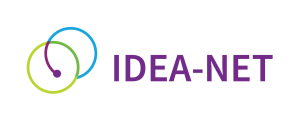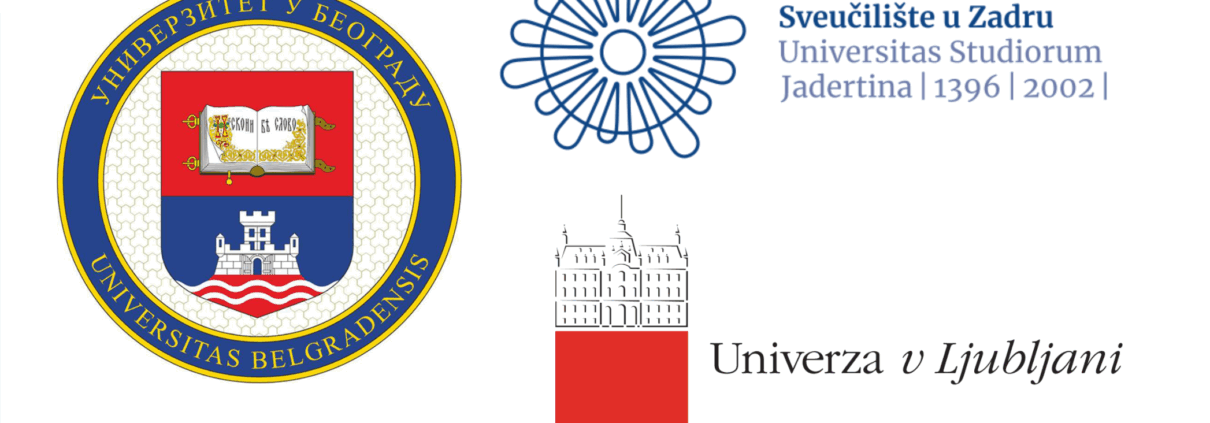IDEA-net project researchers, Professor Slobodan Cvejić and Dr. Milica Resanović organised a dynamic webinar focused on the potential for establishing an IDEA Office (Inclusion, Diversity, Equity, and Accessibility) within the University of Belgrade. Together wtih Dr. Nataša Simić, Vice Dean for Academic Affairs, the webinar engaged both academic and administrative in discussing key opportunities and challenges.
Resources inspiring change
The webinar began with a brief presentation by Milica Resanović, who introduced the IDEA-net project (Expanding the Network of IDEA Practitioners in Higher Education through Institutional Capacity Building). All participants had the opportunity to learn about the project’s key ideas and objectives. Special emphasis was placed on an analytical overview of the Compendium of Best Practices, highlighting the diversity of IDEA practices around the world and the different ways in which inclusiveness and excellence are integrated into the everyday work of higher education institutions.
Slobodan Cvejić then presented the Guideline on Establishing an IDEA Office, published as part of the IDEA-net project. The presentation focused on the essential steps required to establish such an office, with particular attention given to evaluating which steps may already be partially implemented, such as identifying underrepresented groups and pinpointing critical moments in students’ academic journeys when they may be especially vulnerable, and which steps still need to be taken in the future.
Reflecting on the vision for September
Dr. Nataša Simić concluded the session by sharing her knowledge of the most vulnerable student populations and current support mechanisms available at the Faculty. She also highlighted a variety of initiatives already aligned with IDEA principles, both formal and informal, which could serve as a strong foundation for future institutional practices.
The exchange of ideas that followed served as a powerful catalyst for reflection and collaboration. It set the stage for concrete next steps toward building a more inclusive, equitable, and supportive academic environment at the Faculty of Philosophy. In total, 19 participants discussed for 90 minutes and agreed to continue with IDEA activities in September.

Within the span of one week between March and April 2025, the IDEA-net project visited the universities of Belgrade and Zadar to host capacity building on matters of Inclusion, Diversity, Equity and Access (IDEA) in education. These workshops follow from the first workshop at the University of Ljubljana. We would like to thank our hosting universities for coordinating all necessary preparations as well as the Expertise Center for Diversity Policy and Erasmus University Rotterdam who delivered these workshops.
Our first workshop in Ljubljana
Hosted over two days at the end of the summer of 2024, teaching and administrative staff of the University of Ljubljana gathered at the Faculty of Arts to take part in the IDEA-net’s first capacity building pilot. Discussions tapped into the questions, experiences and expertise of the university faculty staff on:
- The differential qualities of safe, brave and accountable spaces.
- The intersectional and contextual dimensions of diversity.
- How issues regarding diversity, inclusion, exclusion are resonated with, and how these manifest contextually.
- The workings of exclusion mechanism, such as micro-aggressions, and possible interventions.
- Actions for a safe and inclusive campus culture at the University of Ljubljana.
Our second workshop in Belgrade
Led together with the Faculty of Philosophy, participants of the capacity building shared their experience and vision for IDEA concepts, frameworks, policy, practice, networks and community.
The University of Belgrade’s decentralised model of governance set the context for identifying methods to strengthen cooperation and communication between cross-faculty bodies, professors and students to enhance IDEA.
The faculty’s Committee for Student Issues, administration, legal office, students organisation and the vice-deans were in attendance.
Our final workshop in Zadar
At the University of Zadar, participants from the academic departments and Student Counselling Service had the opportunity to become acquainted with current concepts and practices related to ensuring inclusion at higher education institutions, as well as to exchange their own experiences of working with students.
The two-day workshop addressed:
- What are the possible frameworks for ensuring the inclusion of students, as well as staff members, from vulnerable groups?
- What does it mean to foster a culture of belonging within the context of a higher education organization?
- Who are the specific vulnerable student groups at the University of Zadar, and how should they be approached?
- What is the significance of inclusive curricula and pedagogies for teaching practices, and what is their role in supporting students?
In addition to detecting the University’s strengths and spaces for IDEA improvement, participants underlined the importance of Student Counselling Service in providing pyschosocial support to vulnerable students. They also agreed on improving the inclusion of students who work as well as extending IDEA principles to University staff.

The Guideline Toolkit for setting up an IDEA office is designed to be a supporting framework, which post-secondary institutions may also apply to evaluate and improve on Inclusion, Diversity, Equity and Access activities. University College Dublin (UCD) and the University of Zadar have been the primary leads developing this report, together with the IDEA-net project partnership. The guideline is the product of an extensive desk review and multiple workshops and sessions with IDEA practioners to test its usefulness across borders and cultures. It is neither prescriptive nor exclusionary. Local expertise will be vital in ensuring that the Guideline Toolkit can be adapted as appropriate.
The nine steps
-
- Identify need and underrepresented groups.
- Identify inclusion activities over the student life and employee cycle.
- Establish principles.
- Identify governance structures/prerequisites to enable success.
- Identify stakeholders.
- Source funding and resources.
- Identify an optimal IDEA structure.
- Develop a system for measuring impact.
- Engage students and staff as partners.
Providing clarity of purpose from the outset is a core message to develop an understanding of when, where, and how interventions and activities can be most appropriately made. The steps outline an ambitious plan for post-secondary institutions to celebrate change and diversity. Recommendations are specifically attentive to IDEA-conducive activities as well as intra- and inter-institutional cooperation while generic enough to be beneficial in meeting different benchmarking systems, where based on principles of equity or equality.
Challenges and possible solutions
Feedback gathered in the development of the guideline highlighted the need to address conservative opposition. The importance of working with each other has been stressed, with concrete actions suggested in the guideline to avoid polarisation and “taking sides”.
Fear of saying the wrong thing often fuels resistance to IDEA. By following the nine steps above, education institutions would be taking a crucial step towards agreement on what is and is not within the remit of the IDEA office with all relevant collaborators.
Suggestions for securing institutional management buy-in are included. Where the opening an IDEA office is not possible in the short-term, starting small – from wherever it is possible to start – is beneficial towards a “plus one” approach. This attitude ensures appreciation and the opportunity for small changes to make a significant impact.




